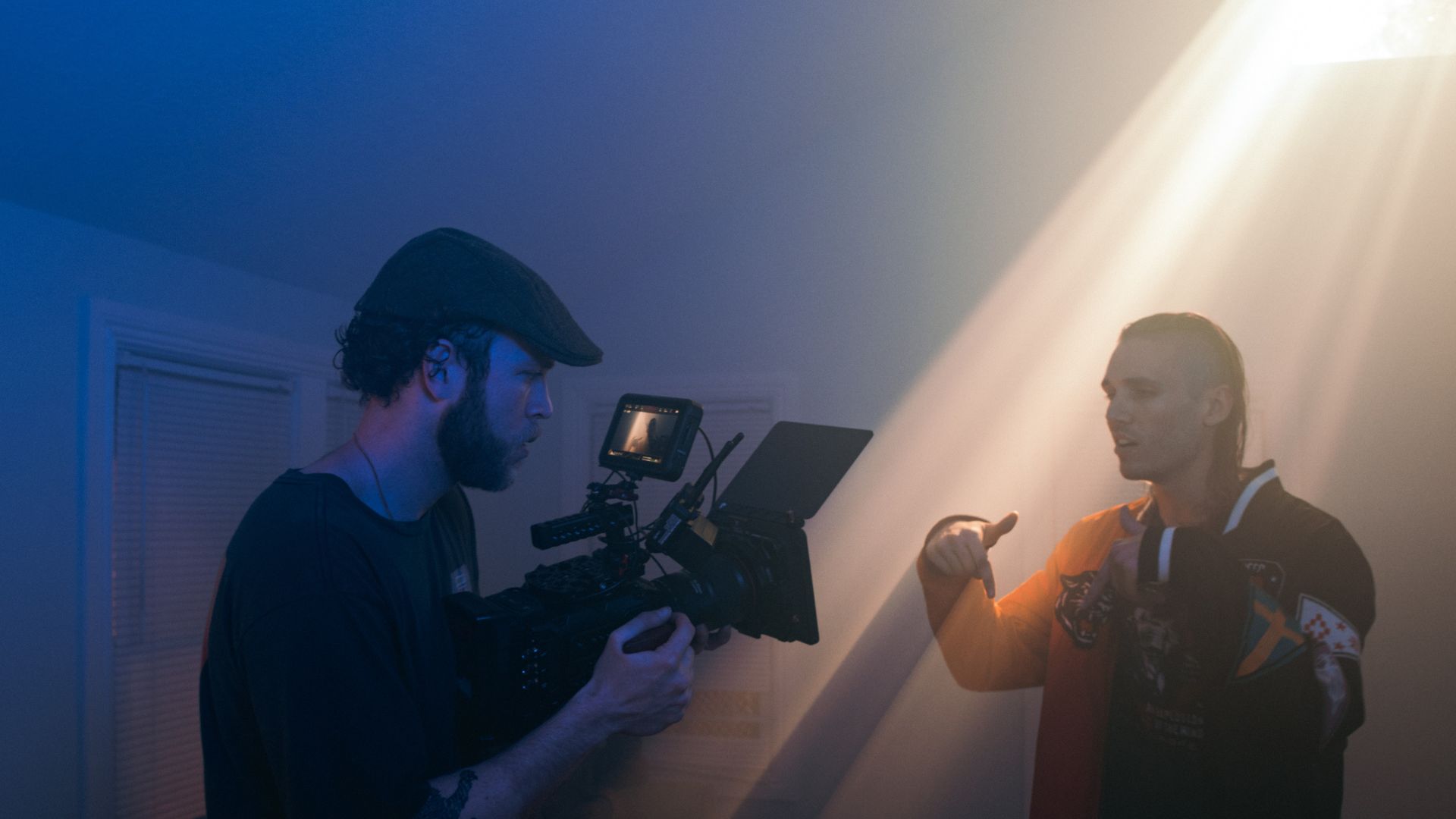In the world of cinema, directors are the visionaries who bring stories to life, shaping the entire film experience. Their influence extends beyond the set—they create the tone, structure, and emotion of a film, making their mark on audiences for generations. A director’s creative genius often redefines filmmaking, whether through groundbreaking visuals, innovative storytelling techniques, or the way they approach character development. Some directors have left such an indelible mark on the film industry that their work continues to influence filmmakers and audiences alike.
In this article, we’ll explore five directors who revolutionised cinema and whose contributions changed the film industry forever:
- Steven Spielberg: The master of blockbusters
- Martin Scorsese: The craft of storytelling
- Alfred Hitchcock: The master of suspense
- Quentin Tarantino: Reinventing storytelling
- The enduring legacy of these visionaries

Steven Spielberg: The master of blockbusters
When we think of blockbuster filmmaking, it’s impossible not to mention Steven Spielberg. Spielberg’s career spans over five decades, and his contributions to cinema have not only made him one of the most successful directors in history but have also redefined what we expect from a blockbuster film. Spielberg’s ability to blend adventure, emotion, and spectacle has resulted in some of the most iconic films ever made.
Jaws (1975) is often credited with creating the modern blockbuster. With its tense pacing, unforgettable score by John Williams, and a menacing shark that could almost be considered a character in its own right, Jaws redefined how films were marketed and distributed, setting the stage for summer blockbusters. Spielberg’s innovative approach to suspense and his expert use of tension turned Jaws into more than just a monster movie—it became a cultural phenomenon.
Another of Spielberg’s masterpieces is E.T. the Extra-Terrestrial (1982), a heartwarming tale of a young boy who befriends an alien stranded on Earth. Spielberg’s use of special effects was groundbreaking for the time, and the film’s emotional resonance, combined with its sci-fi premise, captured the hearts of audiences around the world. E.T. remains one of the highest-grossing films of all time and is widely regarded as a timeless classic. Through films like Jaws and E.T., Spielberg’s ability to merge thrills with deep human emotion helped establish him as a master of cinematic storytelling.
Martin Scorsese: The craft of storytelling
While Spielberg was redefining the blockbuster, Martin Scorsese was perfecting the art of storytelling, focusing on character-driven dramas with a unique, visceral intensity. Scorsese’s contributions to film have been immeasurable, with his distinctive filmmaking style and ability to create complex, morally ambiguous characters.
One of Scorsese’s most iconic films is Goodfellas (1990), a brutal and captivating look at the world of organised crime. Through impeccable pacing, a brilliant script, and dynamic performances, Scorsese brought the gangster genre to new heights, focusing not just on the crime but on the human cost of that lifestyle. Goodfellas is lauded for its innovative use of narration and its unforgettable tracking shots, setting a new standard for how to capture the intricacies of character and story.
Taxi Driver (1976) is another prime example of Scorsese’s storytelling mastery. The film, which stars Robert De Niro as the troubled Travis Bickle, explores themes of isolation, mental health, and urban decay. Scorsese’s use of gritty realism and dark cinematography immerses the audience in Bickle’s fractured mind, making Taxi Driver one of the most influential films in American cinema. Through films like Goodfellas and Taxi Driver, Scorsese has proven himself to be a master of not only visual storytelling but also exploring complex human emotions and societal issues.

Alfred Hitchcock: The master of suspense
Alfred Hitchcock is widely regarded as the master of suspense, and his influence on the thriller genre is immeasurable. Hitchcock’s films are marked by their meticulous plotting, psychological depth, and ability to create tension in the simplest of moments. His work continues to inspire directors today, with his unique approach to building suspense and using the audience’s fear against them.
Perhaps Hitchcock’s most famous film is Psycho (1960), a groundbreaking horror-thriller that redefined the genre. Psycho was revolutionary in its shock value, especially the infamous shower scene, which is still one of the most iconic moments in cinematic history. Hitchcock’s ability to manipulate the audience’s expectations and deliver unexpected twists made Psycho a cultural milestone, influencing countless films in the thriller, horror, and suspense genres.
Another key film in Hitchcock’s career is Rear Window (1954), which explores voyeurism, paranoia, and human nature. The film centres around a man, played by James Stewart, who believes he has witnessed a murder through his window. Hitchcock’s expert use of limited space and his ability to create tension through subtle visual cues and sound design make Rear Window a masterclass in suspense filmmaking. Hitchcock’s legacy in the thriller genre remains unmatched, and his work continues to influence filmmakers around the world.
Quentin Tarantino: Reinventing storytelling
Quentin Tarantino is one of the most distinctive filmmakers of the modern era, known for his innovative use of dialogue, non-linear storytelling, and penchant for violence. Tarantino’s films often blur the lines between genres, combining elements of action, drama, and black comedy to create a cinematic style all his own.
*Tarantino’s Pulp Fiction (1994) is a prime example of his unique approach to storytelling. The film’s non-linear narrative structure, which tells several interwoven stories out of order, was groundbreaking at the time. The film’s sharp, witty dialogue and dark humour, paired with memorable performances by John Travolta, Uma Thurman, and Samuel L. Jackson, made Pulp Fiction a cultural touchstone. The film revitalised Travolta’s career and cemented Tarantino’s place in Hollywood.
Kill Bill (2003-2004) further cemented Tarantino’s status as a filmmaker who defied convention. The film’s genre-blending, stylised violence, and striking visuals have become synonymous with Tarantino’s name. His ability to fuse influences from martial arts films, Westerns, and revenge thrillers created a new kind of cinematic experience that continues to inspire filmmakers today.
The enduring legacy of these visionaries
The directors highlighted above have left a lasting mark on cinema, each in their own unique way. From Spielberg’s ability to craft blockbusters that touch the heart, to Scorsese’s exploration of complex characters and moral dilemmas, to Hitchcock’s mastery of suspense, and Tarantino’s reinvention of storytelling, these filmmakers have shaped the course of cinema and influenced generations of filmmakers.
Let’s recap:
- Steven Spielberg: Renowned for his mastery of blockbusters, Spielberg redefined the modern blockbuster with films like Jaws and E.T. the Extra-Terrestrial, blending emotion, spectacle, and adventure.
- Martin Scorsese: A master of storytelling, Scorsese revolutionised character-driven dramas with films like Goodfellas and Taxi Driver, using unique techniques like narration and intense character study.
- Alfred Hitchcock: The “Master of Suspense,” Hitchcock’s films like Psycho and Rear Window reshaped the thriller genre with their psychological depth, tension-building, and unexpected twists.
- Quentin Tarantino: Known for his non-linear narratives, sharp dialogue, and genre-blending, Tarantino reinvented storytelling with films like Pulp Fiction and Kill Bill, influencing modern filmmaking.
- These directors have had an indelible impact on cinema, pushing boundaries, shaping genres, and influencing countless filmmakers and films that followed.
Their work has not only defined entire genres but also redefined the boundaries of what films can achieve. Their creative contributions have left us with a treasure trove of cinematic masterpieces that continue to inspire, entertain, and challenge audiences around the world. As the film industry continues to evolve, their legacy will remain integral to the art of filmmaking for years to come.







